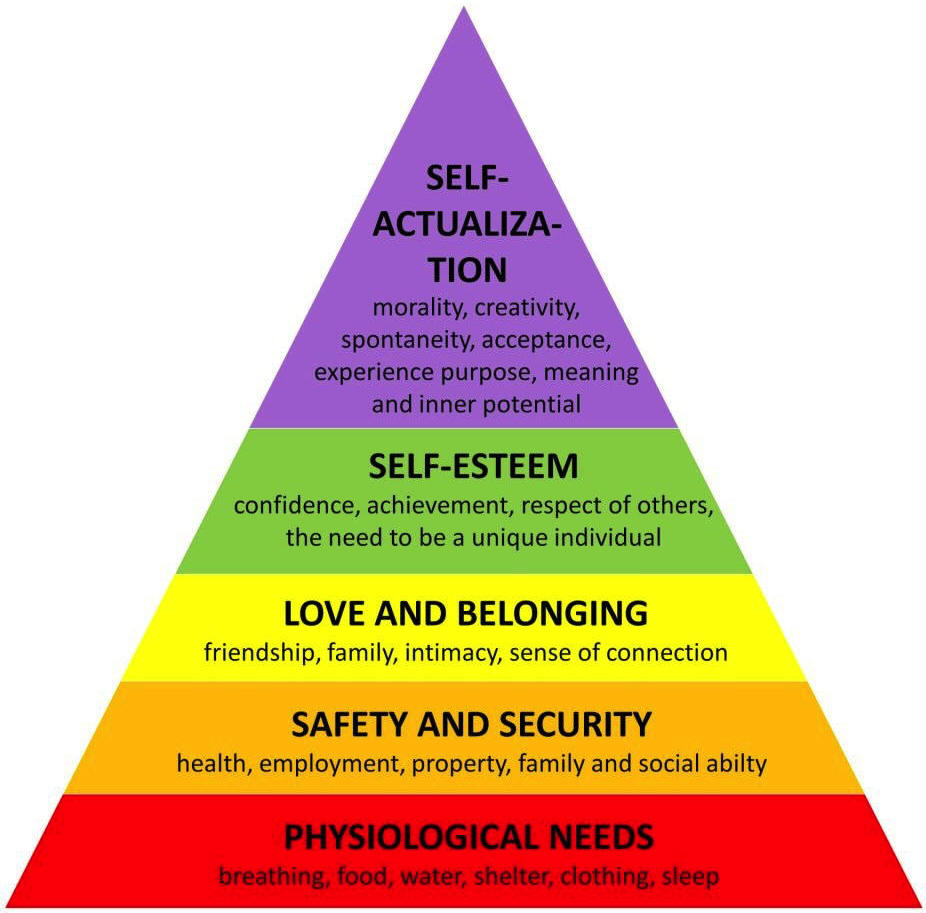|
 Understanding Maslow's Hierarchy of Needs
Understanding Maslow's Hierarchy of Needs
In 1943, psychologist Abraham Maslow proposed a theory that remains profoundly relevant to municipal governance today. His hierarchy of needs suggests that humans must satisfy basic requirements before they can focus on higher-level pursuits. The hierarchy is typically represented as a pyramid with five levels:
Level 1 – Physiological Needs: Food, water, shelter, warmth, rest
Level 2 – Safety Needs: Security, stability, freedom from fear
Level 3 – Belonging Needs: Relationships, community connection
Level 4 – Esteem Needs: Recognition, accomplishment, respect
Level 5 – Self-Actualization: Creativity, personal growth, pursuit of potential
Cultural enrichment and the arts fall primarily into the upper levels of this hierarchy - they represent self-actualization, creative expression, and community identity. These are valuable pursuits, but only after lower-level needs are met.
The Reality in Owen Sound
Walk through downtown Owen Sound on any given day, and you'll witness the gap between Maslow's theory and our municipal reality. People sleeping in doorways. Individuals struggling with addiction without adequate support services. Families choosing between rent and groceries. These are Level 1 and Level 2 needs going unmet in our community.
When we have residents who lack secure housing, when mental health services have months-long waitlists, when food banks are overwhelmed - we cannot justify prioritizing an art gallery expansion. It's not that the arts don't matter. It's that survival matters more.
The Practical Application to Municipal Budgets
Maslow's framework isn't just psychological theory - it's a practical guide for municipal spending priorities. Our city budget should reflect a commitment to building from the foundation up. When it comes to Bsic Needs, all Owen Sound residents are city Council's responsibity and deserve direct attention from city hall first and foremost. Although the county is rightfully exercising it's responsibility, Owen Sound City Council must allways take the lead when it comes to the welfare and care for its residents who are suffering.
First, address physiological and safety needs: This means investing in emergency shelters, affordable housing initiatives, mental health and addiction services, and food security programs. It means ensuring our most vulnerable residents have a warm, safe place to sleep and access to basic healthcare.
Second, strengthen community supports: Once basic needs are addressed, we can invest in community centers, programs that combat social isolation, and services that help people rebuild their lives and connections.
Then, consider cultural enrichment: Only after we've established a strong foundation should we direct significant municipal resources toward projects like art gallery expansions. At that point, more residents will actually be in a position to benefit from and enjoy these cultural amenities.